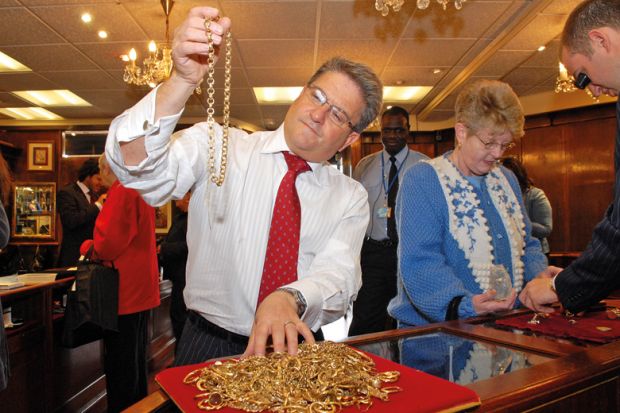Researchers have called for the equivalency of qualifications in the Ucas tariff to be reviewed after a study by the University of Cambridge’s examinations arm suggested that the tariff system overvalued both the International Baccalaureate and vocational BTECs.
Tim Gill, a research officer at Cambridge Assessment, found that undergraduates who had taken A levels were more likely to get a good degree than IB students with the same number of Ucas points, and significantly outperformed learners who had taken BTECs.
Looking at data for tens of thousands of students who completed a degree in 2012 or 2013, Mr Gill calculated that undergraduates who had earned top scores in the IB and secured 720 Ucas points had a 61.8 per cent chance of getting a first. However, students who had taken A and AS levels and had got the same number of Ucas points had a 70.4 per cent of getting a first, he says.
An IB student getting a tariff of 501 – about average for these undergraduates – had a 21.7 per cent chance of a first, compared with 29 per cent for a student with A and AS levels.
Mr Gill therefore estimates that a Ucas score of 720 for IB students is actually equivalent to a score of 672 for A- and AS-level students: a difference comparable to two and a half A-level grades.
Overall, if tariff points are not considered, IB students are more likely to get a good degree compared with those with A levels, but that is because more of them get top grades in their school qualification.
Mr Gill also found that undergraduates who had achieved the top score in a BTEC diploma and got 360 Ucas points had a 5.1 per cent probability of getting a first, compared with 19.9 per cent for A-level students with the same tariff score. These BTEC students had a 45.8 per cent chance of getting a 2:1, compared with a 79.6 per cent probability for their A-level counterparts.
As such, Mr Gill calculates that a Ucas score of 360 from BTECs is equivalent to an A-level tariff of 200.
The study, in Cambridge Assessment’s latest Research Matters publication, does not account for the possibility that students with BTECs may struggle in higher education because university teaching is oriented towards entrants with A levels.
But Mr Gill argues that there is a strong case to redraw the tariff, especially for the “highly overvalued” BTEC.
Ucas is introducing a new tariff in 2017, but the relationships between different types of qualification will be largely unchanged.
Francis Green, professor of work and education economics at the UCL Institute of Education, described this as “disappointing”, arguing that schools and universities needed good information to make admissions decisions and advise students on their options.
“It would be useful for them to have a credible guide, and at the moment they don’t have it,” Professor Green said.
A Ucas spokesman said that most universities would “take a rounded view of applicants rather than making decisions based solely on predicted or achieved grades”.
Pearson, which runs BTECs, said that the qualifications had been updated since the Cambridge analysis and added that, according to its data, more than half of university students with BTECs got a first or a 2:1.
Peter Fidczuk, UK development and recognition manager for the IB, said that most IB students went to universities that did not use the Ucas tariff for admissions and that the broader curriculum provided by the qualification would prove of greater benefit in the long run.




